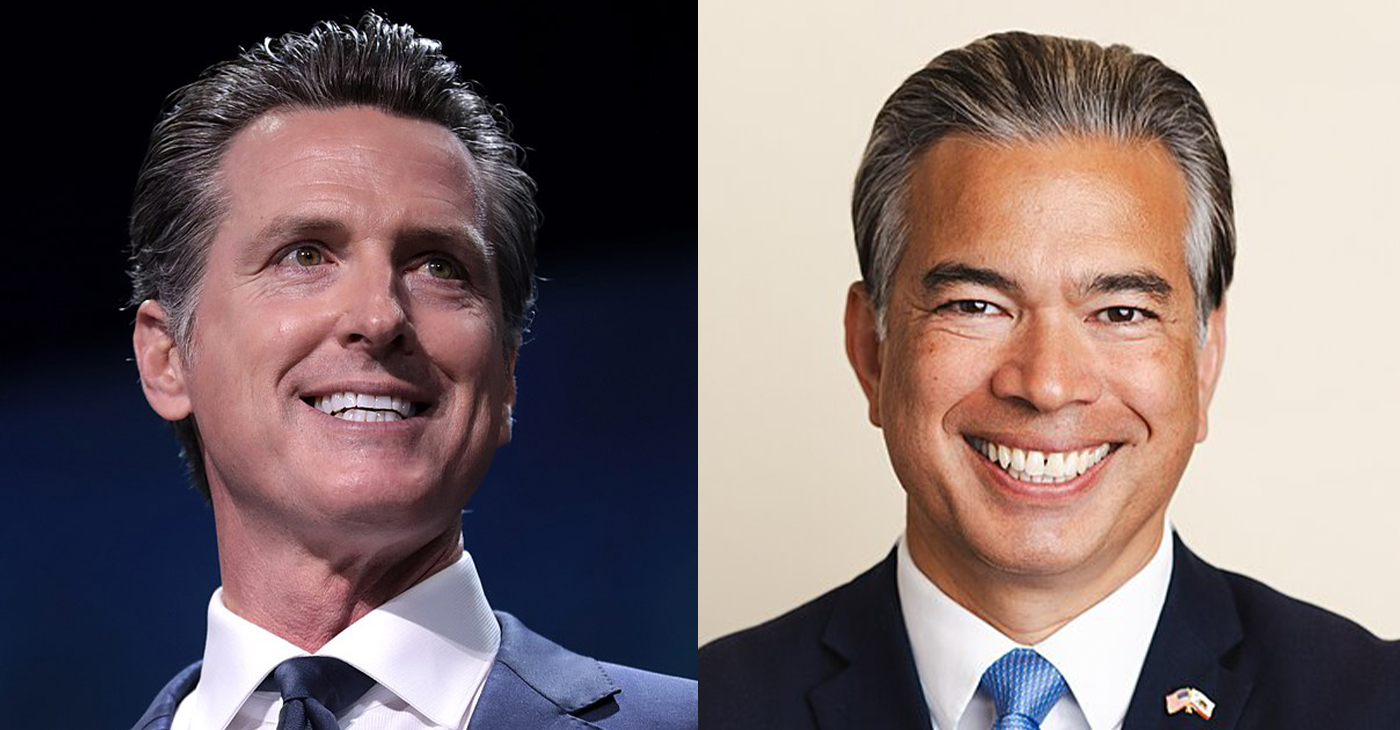Health
Hospitals Profit from Exorbitant Markups
By Jazelle Hunt
NNPA Washington Correspondent
WASHINGTON (NNPA) – Hundreds of American hospitals are turning a profit by charging patients exorbitant rates for necessary procedures. And for 50 hospitals in particular, the mark-ups are as high as 12 times the amount it costs them to deliver those services.
This is the revelation from a paper published last week in the Health Affairs medical journal, titled “Extreme Markup: The Fifty US Hospitals With The Highest Charge-To-Cost Ratios.”
“These 50 are outliers, they’re very skewed. But that does not mean all the other hospitals are hidden,” says Ge Bai, assistant professor of accounting at Washington and Lee University, and co-author of the paper. “It’s very difficult to tell [though]. You’d have to ask the question, when you walk in, at the front desk…about the ownership of the hospital.”
The researchers looked at 2012 hospital price lists for nearly 5,000 facilities across the country, and compared them to the Medicare-allowable costs, defined as the most reasonable fees a hospital can expect to spend in effectively delivering any given service to Medicare patients, as calculated by the government. They are not intended to guide hospital charges to patients, and every hospital creates its own price list. These lists are called chargemasters and are often difficult for patients to access and decipher unless a hospital takes the rare initiative to be transparent.
According to the study, most hospitals charge patients between 1.5 and 4 times the Medicare allowable cost. A smaller, but sizable number of facilities charge between 4 and 9 times the cost. The 50 outliers – 49 of which were for-profit facilities – were charging patients between 9.2 and 12.6 times the cost they incurred in delivering services.
The top five hospitals with the steepest mark-ups, all charging at least 12 times the Medicare cost, were North Okaloosa Medical Center and Bayfront Health Brooksville in Florida; Carepoint Health-Bayonne Hospital in New Jersey; Paul B. Hall Regional Medical Center in Kentucky; and Chestnut Hill Hospital in Pennsylvania.
Florida is home to 20 of the 50 high mark-up hospitals identified in the study. The rest are spread across 12 other states – mostly in the South (76 percent are), and mostly in urban areas (84 percent are).
The other states were Alabama (which had five of these facilities), Arizona (one), Arkansas (one), California (three), Kentucky (one), New Jersey (one), Oklahoma (one), Pennsylvania (seven), South Carolina (one), Tennessee (three), Texas (five), and Virginia (one).
Two publicly-traded corporate hospital systems – Community Health Systems and Hospital Corporation of America – own 38 of these facilities.
Chargemasters vary widely, in general and within this top-50 group. For example, at Orange Park Medical Center in Florida (number eight on the list), if an uninsured person is admitted for one to two days for chest pain, he or she could be charged somewhere between $12,000 and $23,000. About 15 miles away at Memorial Hospital of Jacksonville, the same patient would be charged between $9,000 and $17,000, and that’s with an extra day of care. Both hospitals are owned by the same company, which voluntarily provides its price estimates.
Uninsured people feel the full force of these charges. While the Affordable Care Act has helped millions get coverage, the Centers for Disease Control and Prevention (CDC) estimates that 13.7 percent of Black people are still uninsured as of 2014 and will likely remain so. Many are low-income or below the poverty line, living in states that did not expand Medicare coverage. Half of the states housing the top-50 high mark-up hospitals did not expand Medicare.
Insured people who are “out-of-network” at these facilities are also vulnerable. Insurance companies do not set their terms based on the hospital’s prices – if a policy covers 70 percent of all emergency visits, then the patient is responsible for the 30 percent, whether the hospital charged $100 or $1,000. When a person gets a bill from a hospital that isn’t partnered with his or her insurance company, the company often pays little to nothing of that bill.
People who are both insured and in-network end up paying higher premiums when a hospital with high mark-ups is part of their network. As insurance companies have to cover members who end up in these for-profit facilities, they spread the steep charges among all their members.
“We don’t have price regulations in other industries so people can do comparative shopping. But in the health care market it’s very different. In many cases, we as consumers do not have the time…to compare prices,” Bai says, adding that during treatment, physicians don’t know or are not at liberty to discuss the hospital’s pricing systems. “We as consumers have no options before the service is provided. We just wait there hopelessly…we’re sick and anxious.”
About 30 percent of the hospitals sampled in the study were considered for-profit – Bai says that about half of all hospitals in the country are.
Maryland and West Virginia are the only states with complete health care pricing regulations. California and New Jersey have regulations for what hospitals can charge uninsured patients. Maryland’s system is widely considered a national model, with the lowest mark-ups in the nation (1.5 of Medicare allowable cost). The report recommends a federal system patterned after it.
“We knew these high mark-ups have been going on for a while, at least 15 or 20 years, but this is really over the top,” Bai says. “I think the public needs to understand…there’s a loophole in our system. The market has stopped working. That’s why we need the government to step to help regulate some of these prices.”
####
Community
Report: Black Women Doctors are Underrepresented in Health Care Sector
Physician retention in California has decreased over the years for women doctors of color, a report by the Physicians for a Healthy California stated. According to the report, women physicians are more likely to experience burnout than their male counterparts, a trend that worsened during the COVID-19 pandemic.

By California Black Media
Physician retention in California has decreased over the years for women doctors of color, a report by the Physicians for a Healthy California stated.
According to the report, women physicians are more likely to experience burnout than their male counterparts, a trend that worsened during the COVID-19 pandemic.
The report states that Black and Latino physicians are underrepresented in the healthcare industry. Only 2.8% of physicians are Black and 5.5% are Latino across the state of California.
It also noted that women doctors of color are often assigned to serve in vulnerable and under-resourced communities.
“It is critical for health care organizations to implement effective strategies focused on the retention of this important group of clinicians,” the report stated.
Women doctors of color face career dissatisfaction, contributing to the low retention rates in California’s healthcare industry. The burnout particularly experienced by female doctors of color stems from workplace harassment and perceived lack of value at work.
Additionally, moral injury was another key factor driving women physicians of color away from the workforce. Unlike burnout, moral injury is defined as “the betrayal of what’s right by someone who holds legitimate authority in a high-stakes situation.”
Currently, two of the nine California regions used in the framework of the report — the Inland Empire and San Joaquin Valley — have less than 50 primary care doctors. Physician shortages are projected to get worse over the next few years.
By 2030, the report indicates, the demand for physicians will exceed the supply by at least 12%.
Community
Gov. Newsom, Attorney General Bonta Back Bill to Allow California to Host Arizona Abortion Care
Gov. Gavin Newsom and Attorney General Rob Bonta announced last week that they are backing a bill introduced by the state legislative women’s caucus that would allow Arizona-based doctors to provide abortion care in California to patients from Arizona. Senate Bill (SB) 233 was authored in response to the Arizona Supreme Court’s decision on April 9 that an 1864 ban on abortion in the state is enforceable.

By California Black Media
Gov. Gavin Newsom and Attorney General Rob Bonta announced last week that they are backing a bill introduced by the state legislative women’s caucus that would allow Arizona-based doctors to provide abortion care in California to patients from Arizona.
Senate Bill (SB) 233 was authored in response to the Arizona Supreme Court’s decision on April 9 that an 1864 ban on abortion in the state is enforceable. The bill also aims to counter growing support for anti-abortion legislation in states with Republican-majority legislatures since Roe v. Wade was overturned, according to supporters.
“California will not sit idly by. We’re urgently moving legislation to allow Arizona doctors to provide safe and reliable reproductive care to Arizonans here in California,” Newsom said.
Sen. Nancy Skinner (D-Berkeley), chair of the California Legislative Women’s Caucus said that abortion bans are based on laws that set women back to a time when they had limited human rights.
“Anti-abortion forces have resurrected a dead law passed at a time when women couldn’t vote and husbands beating their wives was lawful,” Skinner said.
On April 24, the Arizona House of Representatives voted to repeal the 1864 abortion ban. It now moves to the Arizona Senate for deliberation.
Bay Area
Mind, Body, and Spiritual Well-Being for Women Addressed in NAACP Forum in Oakland
The Women In The NAACP Oakland Branch is proud to announce the upcoming “Total You – Mind, Body, and Spirit Women’s Health Forum” scheduled for April 27 at Acts Full Gospel Church. Running from 9 a.m.-2 p.m. at 1034 66th Ave., this forum aims to provide an empowering platform for women to engage in discussions, gain knowledge, and access resources pertaining to their health and well-being.

Special to The Post
The Women In The NAACP Oakland Branch is proud to announce the upcoming “Total You – Mind, Body, and Spirit Women’s Health Forum” scheduled for April 27 at Acts Full Gospel Church.
Running from 9 a.m.-2 p.m. at 1034 66th Ave., this forum aims to provide an empowering platform for women to engage in discussions, gain knowledge, and access resources pertaining to their health and well-being.
The forum will feature renowned experts, healthcare professionals, and advocates from Genentech, John Muir Health, Sutter Health of The East Bay, Kaiser Permanente, and the Alameda County Public Health Department.
Our expert panel will address various aspects of women’s health, including physical, mental, and emotional well-being, and healthy relationships. The forum will encompass a wide range of topics such as breast cancer, menopause, reproductive health, nutrition, mental health awareness, preventive care, and much more.
Participants will have the opportunity to attend informative sessions, interactive workshops, and panel discussions led by experts in their respective fields. Additionally, there will be wellness activities, screenings, and informational booths offering valuable resources and support.
This forum is open to women of all ages and backgrounds, encouraging inclusivity and diversity in the conversation surrounding women’s health. Whether you’re seeking information for yourself, a loved one, or simply looking to connect with other women, this event promises to be enlightening and empowering.
For more information and to register for the Total You Women’s Health Forum, please visit https://www.naacpoakland.org/ or contact Dr. Delores Thompson. WIN chairwoman at (510) 328-3638.
The Women In The NAACP Oakland Branch is dedicated to empowering women, and young teen girls. We look forward to your participation in this important event.
To register, go to https://www.naacpoakland.org/events/the-total-you-womens-health-forum
-

 Community2 weeks ago
Community2 weeks agoFinancial Assistance Bill for Descendants of Enslaved Persons to Help Them Purchase, Own, or Maintain a Home
-

 Activism4 weeks ago
Activism4 weeks agoOakland Post: Week of April 3 – 6, 2024
-

 Business2 weeks ago
Business2 weeks agoV.P. Kamala Harris: Americans With Criminal Records Will Soon Be Eligible for SBA Loans
-

 Community2 weeks ago
Community2 weeks agoAG Bonta Says Oakland School Leaders Should Comply with State Laws to Avoid ‘Disparate Harm’ When Closing or Merging Schools
-

 Activism3 weeks ago
Activism3 weeks agoOakland Post: Week of April 10 – 16, 2024
-

 Community2 weeks ago
Community2 weeks agoOakland WNBA Player to be Inducted Into Hall of Fame
-

 Community2 weeks ago
Community2 weeks agoRichmond Nonprofit Helps Ex-Felons Get Back on Their Feet
-

 Community2 weeks ago
Community2 weeks agoRPAL to Rename Technology Center for Retired Police Captain Arthur Lee Johnson
























































